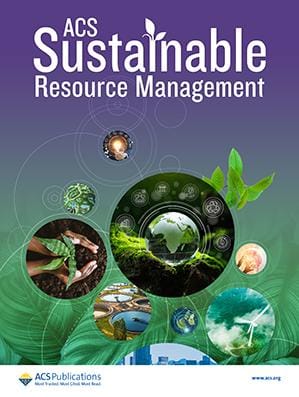Hear from Professors Ivet Ferrer, Joachim Loo, and Milad Kamkar as they discuss their vision for the journal and provide insights into the challenges and opportunities facing the field of sustainable chemistry.
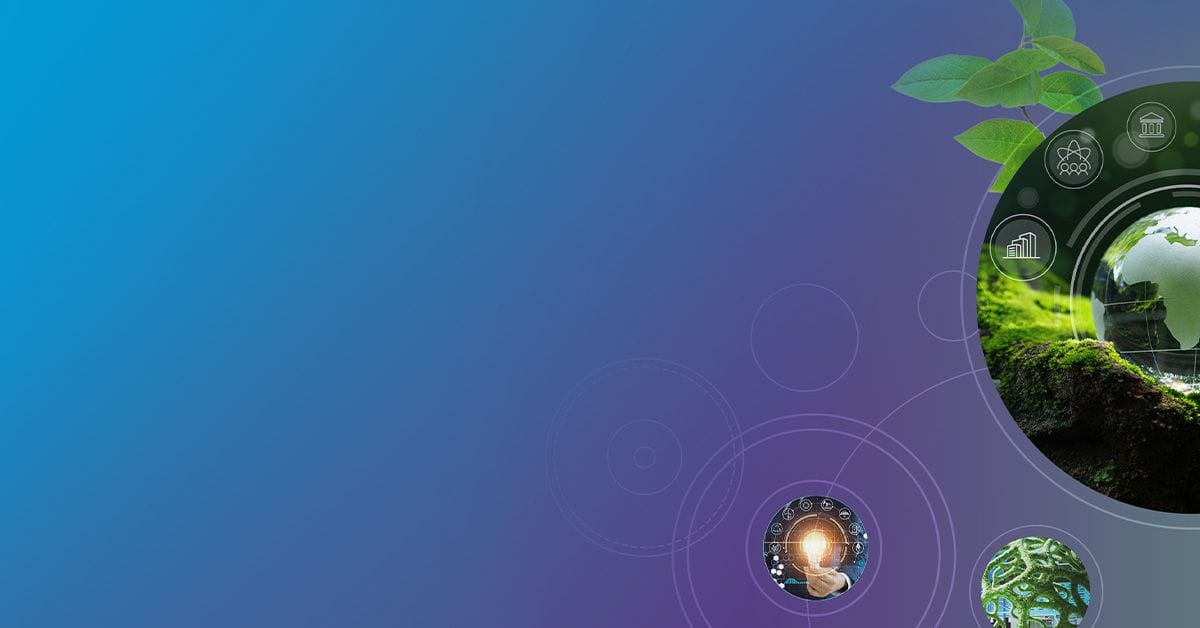
In July 2023, ACS Publications launched ACS Sustainable Resource Management, an interdisciplinary journal publishing original research describing the science and practice in the sustainable use of natural and waste resources.
A sister publication to ACS Sustainable Chemistry & Engineering, the journal is led by Deputy Editor Professor Michael Tam, Ph.D., alongside ACS Sustainable Chemistry & Engineering Editor-in-Chief Professor Peter Licence, Ph.D.
We are also excited to introduce below ACS Sustainable Resource Management's inaugural Associate Editors and Topic Editor, who together bring diverse perspectives and a shared passion for sustainability to strengthen the journal's growth and success in its inaugural year and beyond. Read the interviews below to learn more about them, their vision for the journal, and their hopes for the future of sustainable chemistry.
Professor Ivet Ferrer, Ph.D., Associate Editor
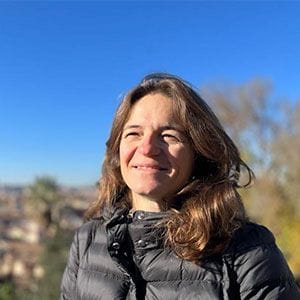
Prof. Ferrer is a Professor in the Group of Environmental Engineering and Microbiology (GEMMA), located within the Department of Civil and Environmental Engineering at the Universitat Politècnica de Catalunya, Spain. She leads the research line on anaerobic digestion and biogas production of GEMMA Research Group.
What is your research focus? What initially attracted you to your field?
Biogas generation from (waste) biomass, with the goal of preventing pollution. The recovery of bioenergy, along with the "treatment" of "waste" materials, nowadays known as resource recovery in the framework of a circular bioeconomy.
What do you hope to bring to your journal?
An energy perspective to a sustainable resource management, specifically the recovery of bioenergy, i.e. biogas, biomethane. In my opinion, biogas can play an important role in biorefineries.
What are the major challenges facing your field today?
The implementation of bioenergy technologies needs support to be competitive with non-renewable energy sources. Consumers should be willing to pay fair prices that include a sustainable management of by-products (and wastes) along the production chain. New developments and materials are always being investigated to improve process performance.
What do you think is the most interesting and/or important unsolved problem in your field?
The implementation of biorefineries obtaining bio-based products along with bioenergy from by-products (waste effluents).
Do you have a recent paper in an ACS journal that you'd like to highlight?
Natural Pigments and Biogas Recovery from Microalgae Grown in Wastewater
Larissa T. Arashiro, Ivet Ferrer*, Catalina C. Pániker, Juan Luis Gómez-Pinchetti, Diederik P. L. Rousseau, Stijn W. H. Van Hulle, and Marianna Garfí
ACS Sustainable Chem. Eng. 2020, 8, 29, 10691–10701
DOI: 10.1021/acssuschemeng.0c01106
Anything else you'd like readers to know about you?
We need to stop climate change and preserve our planet for future generations, so we must investigate and implement all sorts of strategies to stop using fossil fuels and non-renewable energy sources.
Professor Joachim Loo, Ph.D., Associate Editor
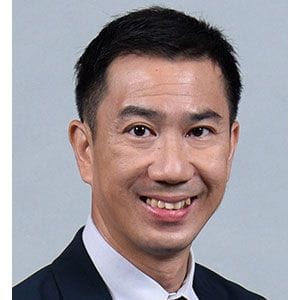
Prof. Loo is an Associate Professor in the School of Materials Science and Engineering, Nanyang Technological University (NTU). He also holds a joint appointment in the Singapore Centre for Environmental Life Sciences Engineering (SCELSE).
What is your research focus? What initially attracted you to your field?
Materials for sustainable applications. The pressing need to ideate new approaches aimed at creating a sustainable world for the generations to come.
What do you hope to bring to your journal?
Drawing a broader and more diverse audience into the field of sustainability and promoting science in this area.
What are the major challenges facing your field today?
The field of sustainability faces several major challenges today, including transitioning to clean energy, reducing waste and pollution, ensuring equitable access to resources, and fostering sustainable economic and consumption practices. One key challenge is to develop feasible solutions that can be readily implemented in a scalable and cost effective manner.
What do you think is the most interesting and/or important unsolved problem in your field?
One of the most critical unsolved issues in the use of plastics today is the urgent need to address plastic waste, its environmental impact, and its associated challenges, including single-use plastics, recycling, microplastics, biodegradable alternatives, sustainable packaging, health concerns, and global cooperation.
Do you have a recent paper in an ACS journal that you'd like to highlight?
Lipid-Polymer Hybrid Nanoparticles Enhance the Potency of Ampicillin against Enterococcus faecalis in a Protozoa Infection Model
Chuan Hao Tan, Lai Jiang, Wenrui Li, Siew Herng Chan, Jong-Suep Baek, Noele Kai Jing Ng, Talgat Sailov, Sharad Kharel, Kelvin Kian Long Chong, and Say Chye Joachim Loo*
ACS Infect. Dis. 2021, 7, 6, 1607–1618
DOI: 10.1021/acsinfecdis.0c00774
Anything else you'd like readers to know about you?
Incorporating sustainability into one's lifestyle also involves maintaining fitness through daily exercise, a commitment I strive to uphold consistently.
Professor Milad Kamkar, Ph.D., Topic Editor
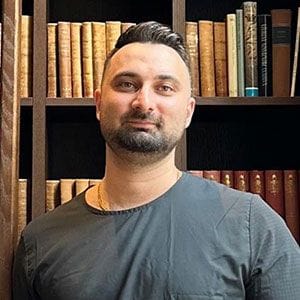
Prof. Kamkar is is an Assistant Professor in the Department of Chemical Engineering at the University of Waterloo. His work, which he describes in more detail below, is focused on structure property relationship of soft materials.
What is your research focus? What initially attracted you to your field?
Initially, my focus was on polymer engineering, with an emphasis on tailoring polymers for various applications. It became apparent that an understanding of rheology was crucial in their processing. More recently, I've recognized the potential of merging my expertise in polymer engineering, nanotechnology, and rheology to create innovative functional materials and inks for 3D printing. This shift allows me to tackle environmental challenges, particularly in shielding against undesirable electromagnetic waves.
What do you hope to bring to your journal?
We aim to build a strong reputation and contribute high-impact papers. Our goal is to establish ACS SRM as the primary resource for academia, industry, and the public to access the knowledge necessary for safeguarding our invaluable resources for future generations.
What are the major challenges facing your field today?
Resolving environmental concerns regarding petroleum-derived polymers.
What do you think is the most interesting and/or important unsolved problem in your field?
In our field, there are a plethora of unresolved and pressing issues. One standout example pertains to our ongoing efforts in developing sustainable materials and inks that are meticulously crafted for 3D printing. These innovative materials aim to construct adaptable scaffolds, meticulously designed to confront and overcome critical environmental challenges. Nonetheless, a particular challenge we confront is the creation of functional materials and inks that are solely based on renewable resources, particularly plant-derived materials, and their application in specific contexts such as electromagnetic shielding. This endeavor, while promising, is still fraught with complexities and obstacles.
Do you have a recent paper in an ACS journal that you'd like to highlight?
Crystalline and Hairy Nanocelluloses for 3D Printed Hydrogels and Strongly Structured Cryogels
Seyed Mohammad Amin Ojagh, Majed Amini, Sierra Cranmer-Smith, Farzaneh Vahabzadeh, Mohammad Arjmand, Kam C. Tam, Orlando J. Rojas, Milad Kamkar*, and Theo G.M. van de Ven*
ACS Sustainable Chem. Eng. 2023, 11, 14, 5674–5684
DOI: 10.1021/acssuschemeng.3c00180
ACS Sustainable Resource Management's First Articles: Now Online and Free to Read!
We are pleased to announce that ACS Sustainable Resource Management's first articles are available and free to read as ASAP (As Soon As Publishable) papers, with more coming soon. Visit the journal's website to learn more, meet the Editorial Board, and get information on how to submit a manuscript.
